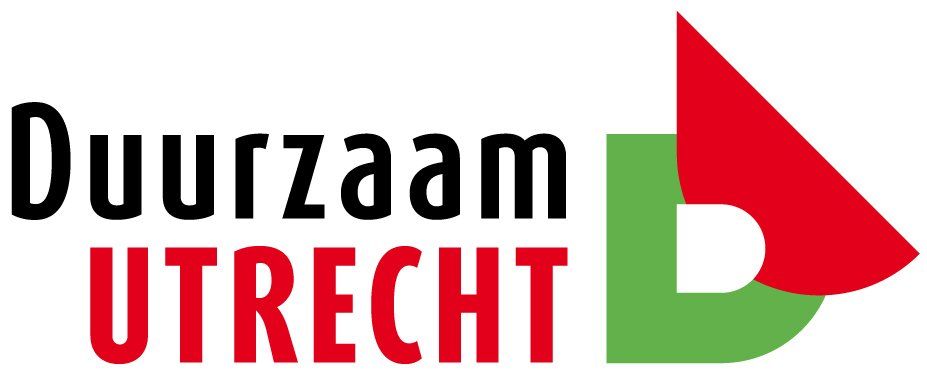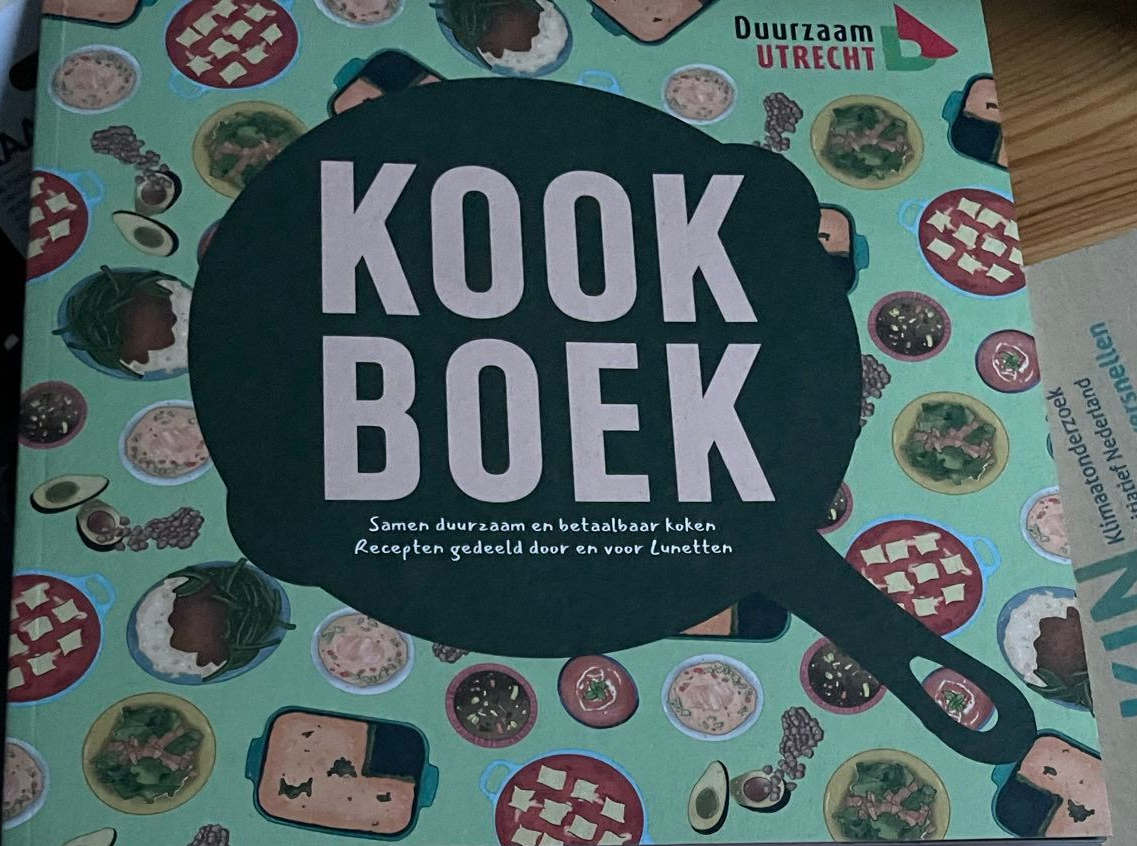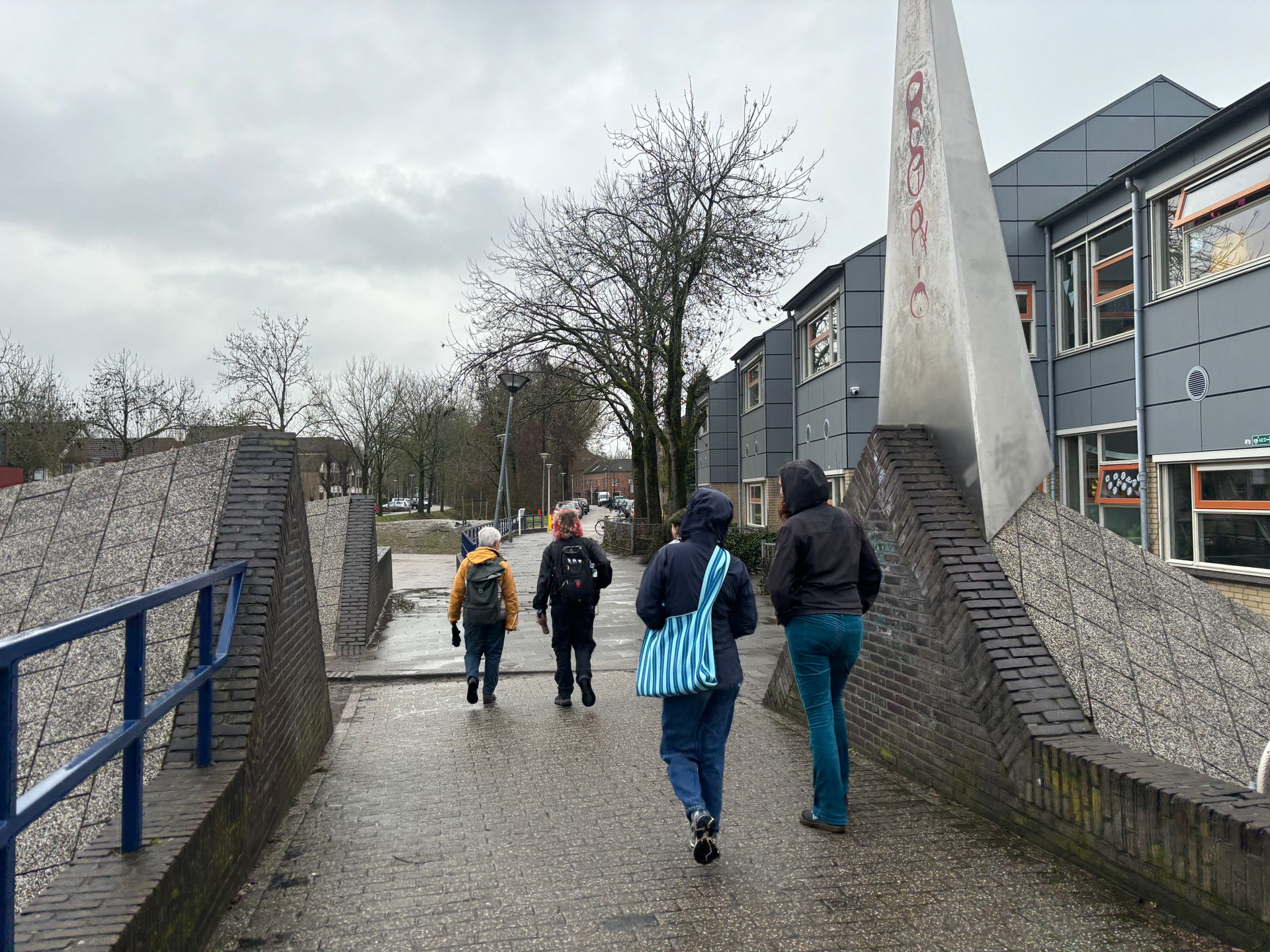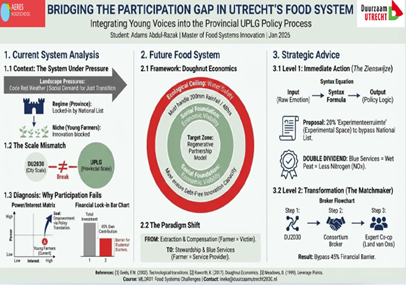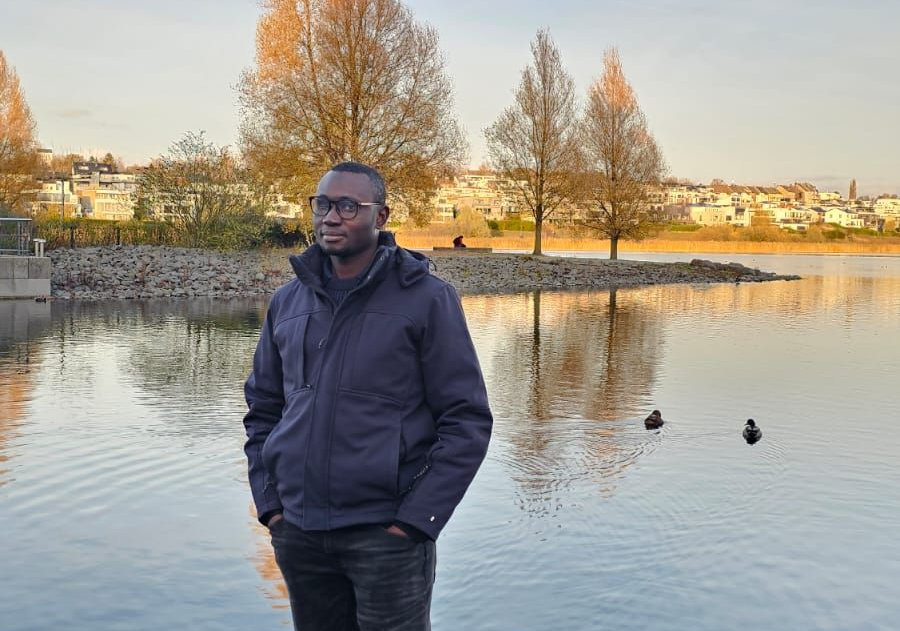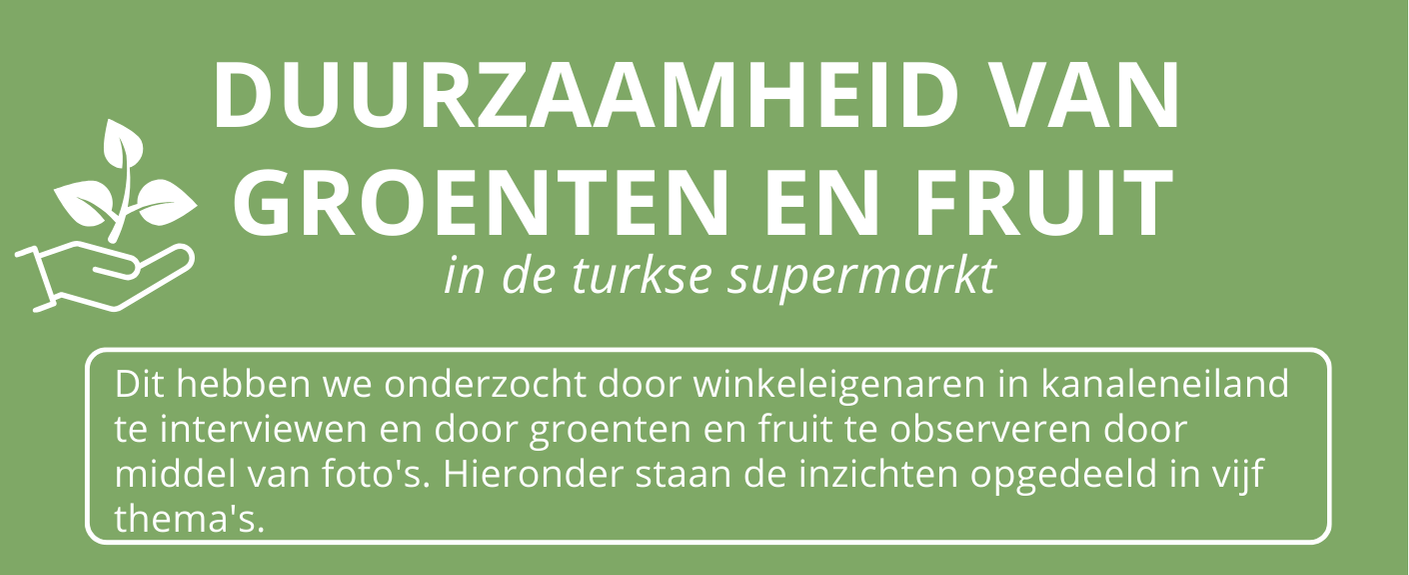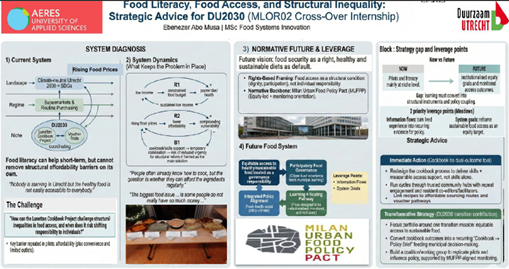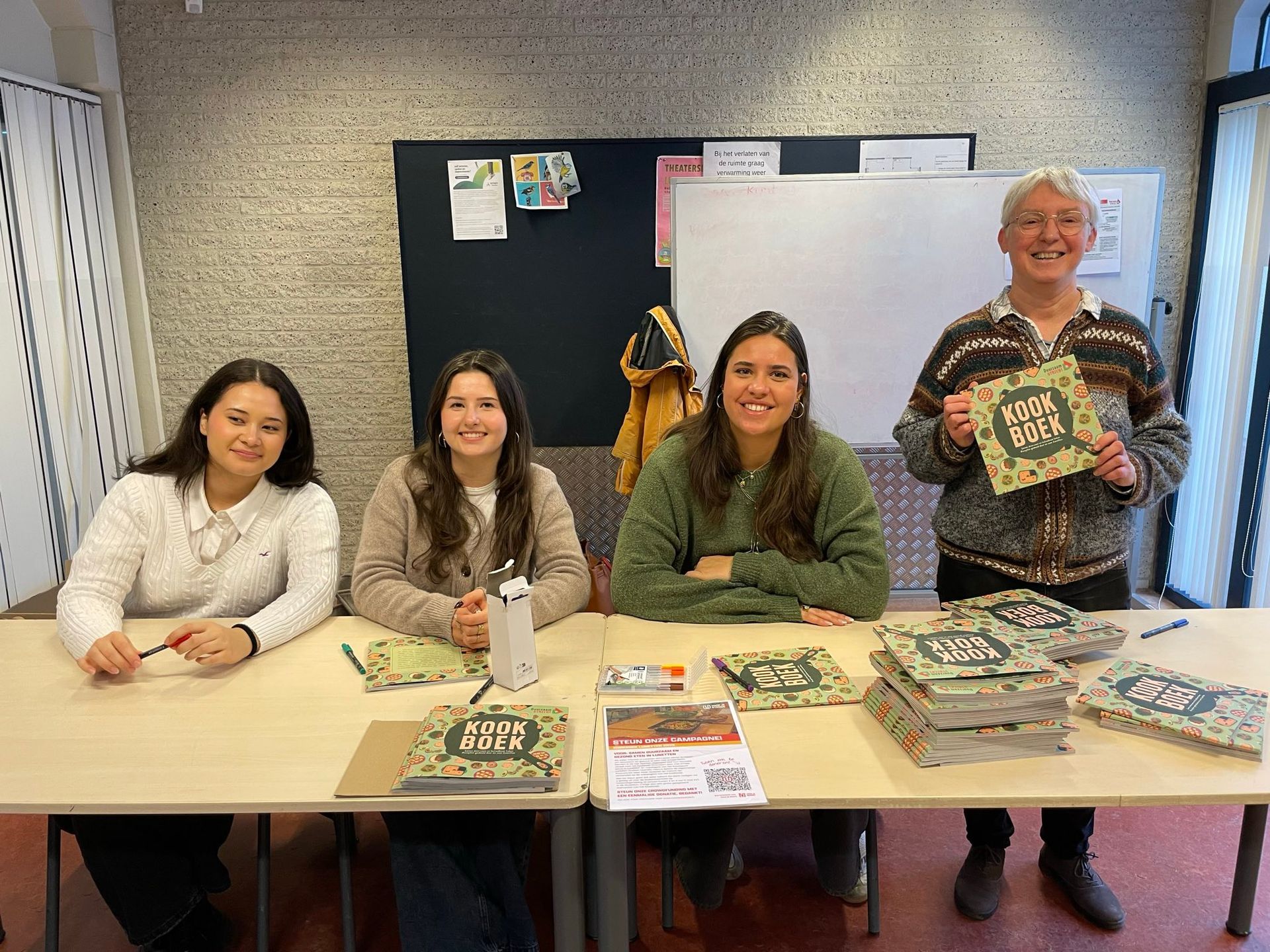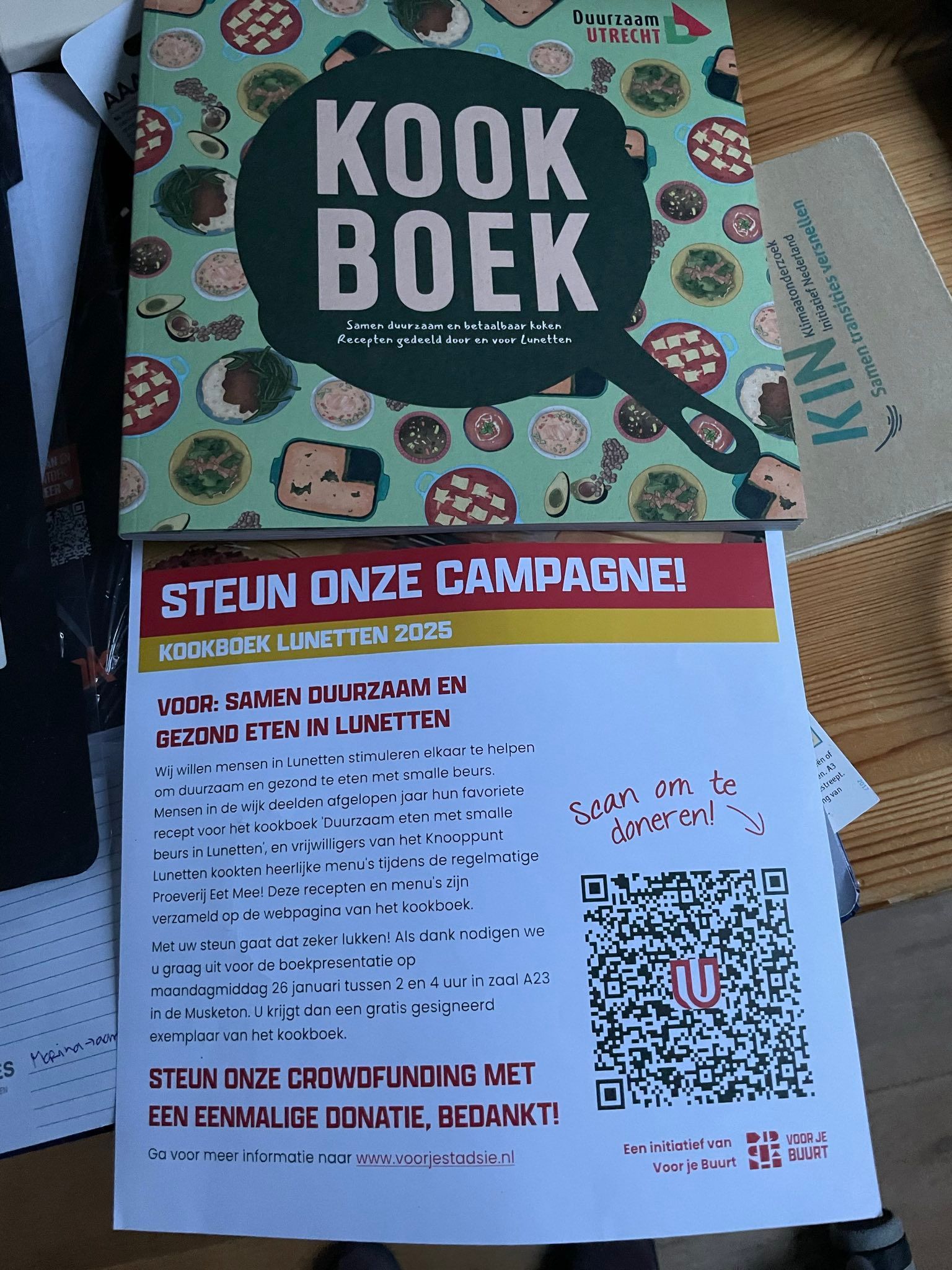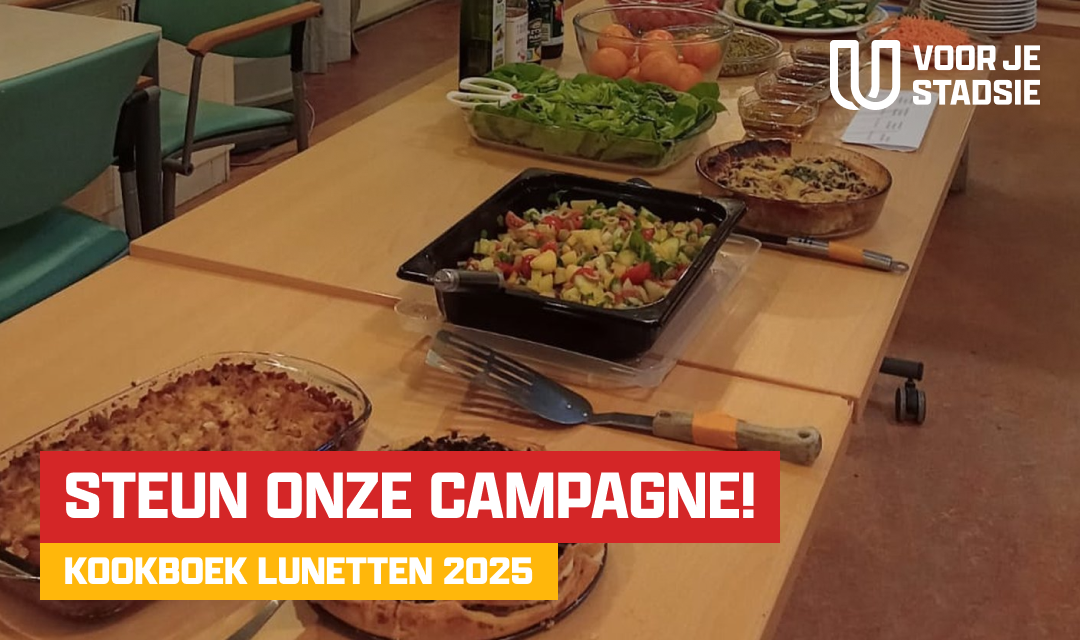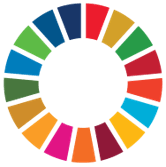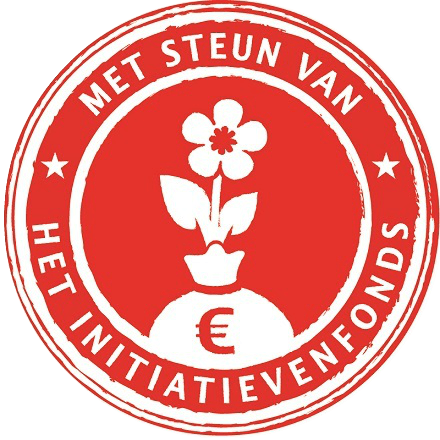Sustainable living for students
Focus group during Green Week at University College Utrecht Campus
Four women and three men brainstormed about stimulating students living at the campus of the University College Utrecht (UCU) to live more sustainably, with specific attention to the needs and wishes of low-income students. The focus group was organised by the UCU Green Team and Federation of Low Income Scholarship Students (FLISS), during lunch time on 16 November 2023.
The meeting started with introductions of Duurzaam Utrecht 2030, where Elizabete and Giulia are active as interns, and of FLISS. In Duurzaam Utrecht 2030, Elizabete is working on a report on the trial with subsidised organic groceries in Lunetten, and we have proposed a follow up project addressing the challenge to regularly supply the food banks with fresh and healthy produce. Recommendations for facilitating organic food for all in Utrecht will be presented in the Domkerk on 15 December, 16.00-18.00 hrs. Giulia is organising dialogue events and street interviews to collect more wishes for sustainable living with a low income from more diverse stakeholder communities. This will inform the priorities for Duurzaam Utrecht 2030 in the coming years.
FLISS is an independent student body, initiated by UCU students. It is a support network on campus allowing first generation low income scholarship students to talk about difficulties they encounter. It is open to anyone who feels they have a low income, has to work two or three side jobs, or take a heavy student loan. They organise workshops on financial aspects, and are preparing a presentation for the tutor network, to raise awareness of their existence, so tutors can inform students about it. The tutor system is the only organisation on campus reaching out to every student.
How to make life on campus more sustainable for students with low income backgrounds? What difficulties on campus are due to low incomes?
Food choices are problematic. As a vegetarian, the advantage is that meat is more expensive, but still, you are not able to buy organic, because it is too expensive. Proteins for vegetarians are very expensive, like nuts or vega-burgers. A completely vegetable, carbon based menu is not healthy.
In addition, some organic food is packaged, for example at AH or Jumbo. The shop Sweet Greens does not sell organic produce, but it is a zero-waste shop, selling oil, fresh humus and feta without packaging.
What would make you buy more organic or fresh produce?
If it is cheaper. Or if it is sold at the nearest supermarket, PLUS. However, for many products, PLUS is not the cheapest. You can also get a subscription to “groentetas”, but then you have to fetch it off campus at a specific time. Sweet greens is next to the Jumbo. It is unclear if it is cheaper or more expensive. A suggestion is to create a website for comparing prices of organic and not-organic food. Milieucentrum Utrecht (MCU) already hosts an online database of sustainable shops in Utrecht, but the listed retailers are mostly in the city centre. A suggestion for them could be to also include initiatives like clothes swaps or the giveaway shop of Stichting Limoenz in Lunetten. Besides asking MCU to expand their database, the UCU Green Team could also develop their own database, by collecting entries through google forms and putting them on a map. This can be used to raise awareness of first year students where to find organic food, vintage clothes, zero-waste stores, and cheaper options. On one’s own it can take two years to discover all the places. In Latvia, zero-waste stores are easily accessible. In the Netherlands, zero-waste shopping is only just starting. Loos Utrecht recently opened a zero-waste grocery store near the campus. Before the summer, they came with a bike on campus, on Friday mornings, which was an awkward timing for students. Tuesday afternoon would be better. On the other hand, the shop is only ten minutes walking. How to get students to venture off-campus? Awareness is the biggest issue. The campus is located in a wealthy neighbourhood. Cheaper shops are further away. Are students motivated to go further than 500 metres? We could go with a group, to increase the motivation of people to go. For example: Tuesday afternoon sustainable groceries group, or Zero-waste groceries afternoon. Zero-waste stores don’t always have containers to put the groceries in. The Green Team is already planning a food exchange shelf in the Newton building, where food is placed in transparent plastic boxes to avoid attracting mice. This can be accompanied by a clean jar collection point. Make sure to tell people to clean the jars before leaving them there. Examples are pesto, jam or pickle jars.
Should consumerism on campus be addressed? Some students find it unacceptable if people buy clothes from some unsustainable companies, and want to call them out. One option is to put up posters for shaming fellow-students, saying “Did you really need that?” It will be important to add data to demonstrate that company X has been doing Y. Information can also be shared on where you can buy other affordable clothes, with a price limit of 5 euro. Getting clothes from a pick-up point is also better than home delivery.
The art school has a sewing machine students can use to mend their clothes, but nobody knows about it. Raise awareness: if your clothes are broken, repair them there yourself. A fashion show is coming up, this can be a good opportunity to raise awareness to avoid throwing clothes away. They use mainly second hand fabrics, almost nothing is bought new. Such fashion shows are organised three times per semester. The upcoming theme is Winter Wonderland. You can also find nice decorations, books and furniture at recurrent flea markets. Start offering the opportunity for people to leave their things as donations for second hand shops. The Green Team can sort the donations and bring them to the store of the resale shop.
Students living in the same unit use the Splitser for buying household products for common use. However, not everyone contributes their share, and not everyone benefits equally. There is a shame culture surrounding it. FLISS wants to table discussion about it.


